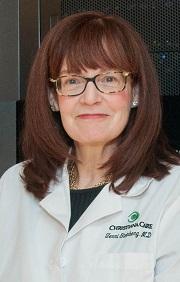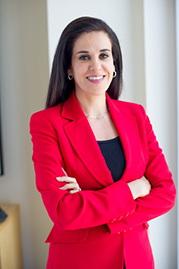 Slow-moving regulators have kept the rules of engagement on social media platforms fuzzy for pharma players. Yet rather than sit on the sidelines waiting for the FDA to take a firm stance on dos and don'ts, many pharma companies have taken a shot at safe moves in the social realm.
Slow-moving regulators have kept the rules of engagement on social media platforms fuzzy for pharma players. Yet rather than sit on the sidelines waiting for the FDA to take a firm stance on dos and don'ts, many pharma companies have taken a shot at safe moves in the social realm.
Every Big Pharma company has at least some presence on social platforms such as Twitter, Facebook and YouTube. The Swiss drug giant Roche ($RHHBY), for example, recently released a series of YouTube videos called "Drawn to Science" that explain key technologies involved in its drug research. Also, its U.S. subsidiary Genentech released a video about employees packing for the ASCO meeting last month that was viewed more than 25,000 times.
Eli Lilly ($LLY) has tackled public policy and other issues on a blog called LillyPad, and the maker of Cialis has spread the LillyPad message via other platforms such as YouTube and Twitter. More recently, the LillyPad effort expanded with a Twitter handle that focuses on interacting with journalists on the microblogging platform. Novartis ($NVS), which makes the oral multiple sclerosis drug Gilenya, has created a website for the MS community called "MS and: Our Story" and shares content from the site via Twitter.
At least for now, these websites contain zero product promotions. Consumers will need to turn on their televisions or open magazines to find ads for Lilly's erectile dysfunction drug. Why? Drugmakers lack the kind of regulation for online and social media promotions that they have for print and TV, says Brian Reid, a director and social media strategist for W2O Group, which advises companies in pharma and other industries on public relations and marketing.
For now, this means pharma companies have avoided promoting drugs on social platforms--likely to the chagrin of the tech companies that own them and could use the ad revenue. The FDA issued draft guidance on off-label communications on digital media in December 2011, providing some indications of the agency's thinking on social media. Yet many issues were left unaddressed, and Congress has set a deadline for the agency to provide more guidance by July 2014, according to a June 5 whitepaper from the PR firm Weber Shandwick.
Still, there are many ways drugmakers can and are using social media without using the platforms to advertise their products. Many companies have adopted technologies that enable them to turn social networking sites into ongoing focus groups, with patients and doctors sounding off on different diseases, products and companies. So-called listening tools have allowed pharma to monitor and aggregate tweets, posts and other online happenings of interest to them.
Potentially powerful collaboration tools have also attracted pharma groups, bringing scientists, patients and physicians into the same digital arenas to share ideas and partner on research.
This is not an exhaustive list of tools, and even I don't hold all of these companies' software in equal regard. Please tell me about ones I missed and your overall thoughts on the items included. -- Ryan McBride (email | Twitter)
Collaboration Tools
![]() PatientsLikeMe
PatientsLikeMe
Status: Privately held, venture-backed
Founded: 2004
CEO: Martin Coulter
Website: patientslikeme.com
Twitter: @patientslikeme
PatientsLikeMe has emerged as one of the premier social networks for patients, with more than 200,000 members who represent more than 1,000 ailments. Beyond attracting members, PatientsLikeMe has consistently added new tools for patients and offerings to customers from the biopharma industry.
One of its latest new gadgets, Open Research Exchange, could appeal to several of the company's main constituencies--patients, researchers and drug developers. The tool allows researchers to test patient questionnaires for measuring outcomes with PatientsLikeMe's patient members, who presumably have enough experience living with certain ailments to let researchers know whether their questions could help measure health outcomes.
It's early days for the Open Research Exchange platform, which solicited pilot users from the research community last month. If successful, drug companies could adopt the patient-reported outcome questionnaires for their clinical trials with some indication that the measurements matter to people with certain illnesses. This would be an advance for social media and open R&D, where patients and researchers use a social network tool to exchange ideas about how to measure outcomes in clinical trials.
Brothers Ben and James Heywood co-founded PatientsLikeMe 9 years ago. They wanted the social platform to break down barriers in healthcare that patients face in finding optimal treatments, barriers like the ones their late brother Stephen took on in his battle with amyotrophic lateral sclerosis (ALS). Open Research Exchange is among other tools, including one for clinical trials searches, that patients can use to support research that could improve treatment.
 ResearchGate
ResearchGate
Status: Privately held, venture-backed
Founded: 2008
CEO: Dr. Ijad Madisch
Website: researchgate.net
Twitter: @ResearchGate
ResearchGate is still enjoying the afterglow of copious press from Microsoft ($MSFT) Chairman Bill Gates' investment in the Berlin-based startup's $35 million Series C round of financing last week. Like most companies that score funding from Gates, ResearchGate seeks business success with benefits to humanity.
The social networking site for scientists beckons researchers to share their data and studies with their peers and bypass the traditional distribution to paying subscribers only. Scientists join ResearchGate for free, and more than 2.9 million have, giving them access to thousands of journal articles and abstracts from other members.
In theory, scientists could advance breakthroughs more efficiently in an "open" research environment where investigators enjoy unfettered access to data in their field. ResearchGate could be a totem of the open R&D movement, promising researchers a platform for sharing their research and gaining educated feedback from their peers.
Yet the open R&D party at ResearchGate needs money to survive. The company has considered moneymaking strategies such as paid job advertisements as well as a marketplace for services.
"Making money with ResearchGate is the easier part compared to creating a complete total mindset change of all the scientists in the world," Madisch told Forbes.
Nobody has deeper pockets in the life sciences world than the pharma industry, and this is likely to be where ResearchGate finds future dollars and euros to keep sailing.
![]() Mendeley
Mendeley
Status: Acquired by Reed Elsevier in April
Founded: 2007
CEO: Dr. Victor Henning
Website: mendeley.com
Twitter: @Mendeley_com
Mendeley has an ongoing rivalry with ResearchGate for the attention of scientists in the realm of social networking. In April the rumors proved true and publishing giant Elsevier emerged as the buyer of U.K.-based Mendeley, a move that instantly ruffled feathers in the open-access community because Elsevier maintains a massive subscriptions business.
Mendeley and Elsevier have pledged to stay true to the original mission of Mendeley and maintain free use of the company's software for storing and sharing PDF files of published research as a service to individual researchers. Elsevier also boosted the free storage amount from 1 gigabyte to 2 gigabytes just to put its money in line with its rhetoric. Elsevier, of course, plans to make money from Mendeley with a paid version of the social site and services.
In the pharma world, Mendeley offers a way for its busy researchers to track and save relevant content in their field. Elsevier would also like to enhance subscriptions with Mendeley's services. Mendeley users can form invite-only, private or open groups among members. This feature, however, is less unique than the social-bookmarking aspect of the service.
Mendeley had about 2.3 million members at the time of the Elsevier acquisition. While this number is obviously less than ResearchGate's nearly 3 million members, a truer indication of the vibrancy of any social network is how many of the members are updating activity on the platform and how much time they spend using it.
Both Mendeley and ResearchGate have generated enough interest to survive, which is better than can be said for Elsevier's abandoned 2collab and Germany's Scholarz, which ResearchGate acquired in November after dwarfing Scholarz's membership base.
 |
| David Steinberg |
Knode
Status: Privately held
Founded: 2011
CEO (acting): David Steinberg
Website: https://search.knodeinc.com/search.action
Twitter: @Knodeinc
The true identity of the startup Knode has surfaced over the past year after initial press likened the company's online software for finding life sciences research experts to LinkedIn. However, Knode isn't concerned with becoming a social networking platform off the bat, acting CEO David Steinberg told FierceBiotechIT.
"We prefer this to be more like Google than Facebook, initially. It's a source of information," Steinberg, who is also a partner at PureTech Ventures, says.
Knode debuted last year with some fanfare in part because the London-based drug giant AstraZeneca ($AZN) stepped out as an early partner. And the Boston-based startup has also signed on the University of Louisville as a user and collaborated with the University of California, San Francisco, to share its content on UCSF investigators.
What sets Knode apart and makes it an emerging social media player in pharma? The company uses sematic technologies and algorithms to automatically generate scientist or researcher profiles from data on patents, clinical trials, grants and published research. This has enabled the company to amass more than 3 million profiles, providing a wealth of researchers for users to find, without the researchers themselves filling out their profiles. Knode does that automatically.
The company was founded after Enlight BioSciences, a collaboration of major drugmakers, sought a way to find the top researchers for their collaborations. In one case, Steinberg says, Knode has built a portal for an undisclosed pharma group that provides the company with detailed profiles on researchers from academic centers with which the company has formed alliances.
The pharma companies can use Knode to contact experts and view their portfolio of content. Down the road, Knode could become a social network if more scientists use the platform to interact and share data. But there's fierce competition in social networking for scientists with ResearchGate and others.
Listening Applications
 Medikly
Medikly
Status: Privately held
Founded: 2009
CEO: Venkat Gullapalli
Website: medikly.com
Twitter: @Medikly
Medikly takes listening applications in social media a couple of steps further for pharma groups interested in the online habits of physicians. Founded by CEO Dr. Venkat Gullapalli, a pediatrician by training, the New York City-based startup's web-based software combines listening with digital engagement and analysis functions.
"The technology is nothing special," Gullapalli told FierceBiotechIT in a recent interview. "Where we as an organization differentiate ourselves is how we apply technology that has already existed in the consumer space to the pharmaceutical space. Our algorithms are specific to physicians and capturing their information."
As the CEO explained, the technology answers some interesting questions about clinicians. What types of online content do they consume? Do they want the content delivered via email, Facebook or another platform? Whom do those doctors influence? These are some of the questions that pharma marketers have been willing to pay to answer as they try to make the best use of their promotional efforts.
Medikly began several years ago in the physician education arena, working for several pharma giants such as Pfizer ($PFE) and Eli Lilly ($LLY), before making a strategic decision to tailor its technology for the marketing side of the industry with a product release last year. Its marketing customers include the consulting firm inVentiv Health, two undisclosed pharma companies and more than a dozen others, Gullapalli says.
The company's timing might be perfect. Pharma companies have been laying off drug reps by the thousands, putting more pressure on their new digital efforts to deliver results. Medikly says it can help them succeed in the digital arena.
 Semantelli
Semantelli
Status: Acquired by IMS Health in April
Founded: 2010
CEO: Siva Nadarajah
Website: semantelli.com
Twitter: @Semantelli/@IMSHealth
Social media stresses out pharma companies' lawyers in part because of the potential liability from online interactions with patients and doctors. Semantelli's claim to fame in the social-media "listening" pack is its AETracker software that allows companies to keep tabs on adverse events reported across the web and to stay in compliance with rules for using Facebook and other online platforms.
IMS Health, the pharma information giant, liked the technology enough to include Semantelli in its software buyout frenzy over the past year or so. Semantelli's group, led by co-founder Siva Nadarajah, went to work in IMS' social media and analytics unit after the buyout was announced on April 30. It was a key endorsement of the young company and its technology because IMS wants to cater to the social media needs of pharma brand managers and others.
IMS scooped up Semantelli after 10 pharma companies signed off on the startup's technology. This is important because drugmakers are historically conservative in adopting new technology, including social media, though they tend to move in herds in their use and/or pursuit of certain technologies, and this could be a welcome trend for Semantelli.
"With adverse events tracking, we help [pharma] companies run social media initiatives," Nadarajah said in an interview last month. "So let's say a company launches a Facebook page. Basically we become the insurance policy for them to run it. Because without these monitoring exercises, they can't [maintain compliance]."
Beyond adverse events reporting, Semantelli and IMS highlight that its technology can also monitor the online activities of physicians. So there are applications beyond compliance.
 Treato
Treato
Status: Private, venture-backed
CEO: Ido Hadari
Website: treato.com
Twitter: @Treato_com
Treato scours the blogosphere and patient websites for data about drugs and health conditions, providing free analytical tools to consumers as well as specialized services to paying pharma companies.
The Israel-based company uses Natural Language Processing (NLP) to pluck insights from the web--excluding Twitter, which flunked its quality test because of too much spam. This has enabled the company to analyze more than 1.3 billion online posts and counting, and the venture-backed group says that its real-time analysis of web buzz can help drugmakers forecast success or failure of marketing efforts.
Last month, the company took a shot at some of its competitors providing prescription data to mark the progress of drug launches, saying that its own analysis of social media and online chatter from patients about Biogen Idec's ($BIIB) new oral MS drug Tecfidera portended its success on the market. Lots of analysts have given the drug a blockbuster prognosis, but Treato demonstrated how social tools could play a great role in guiding drug launches.
It's early days for Treato, but venture investors are buying into its platform, and the Yehud-based startup raised $14.5 million in April from OrbiMed, New Leaf Venture Partners and Reed Elsevier Ventures, among others.
Personally, I like how Treato lets anyone with a web browser try out its analysis tool on its site. In addition to serving pharma clients, as GigaOM reported, the company aims to engage patients and serve as a WebMD of sorts for the new social era of the Digital Age.
 |
| Daphne Zohar--Courtesy of PureTech Ventures |
Peerin (formerly Appeering)
Status: Privately held
Founded: 2012
CEO: Daphne Zohar
Website: peerin.co
Twitter: @peerinbiotech
How is your Twitter game? Peerin has been publicly making the rounds in the biotech arena for about a year and has created software for keeping track of what the "in crowd" is saying on Twitter, with more platforms expected to follow.
It's a useful way for someone to look at what influential people are saying about certain topics, easily showing a visitor to its website some of the most popular conversation threads from industry people. For now, Peerin has sites dedicated to biotech, finance and tech.
PureTech Ventures Founder Daphne Zohar and her colleagues founded the Boston-based startup, seeking to capture a major business opportunity as pharma and other industry groups delve into the social-media fray.
With Peerin, anyone can listen in on the talk of Twitter town in the biotech industry.
Clearly, the social listening crowd has become more crowded over recent years, with each company seeking to occupy its own patch of turf. LiquidGrids, based in the San Diego area, has a soup-to-nuts social media analytics platform for healthcare companies (not just pharma), even though its CEO, Malcolm Bohm, came from the pharma industry with career stops at Pfizer ($PFE), AstraZeneca ($AZN) and Novartis ($NVS).
There could be plenty more competition to come for outfits involved in providing social collaboration and networking tools as well. For instance, in recent months Smart Patients has launched on the West Coast, providing an online community for patients and others dealing with cancer. Dr. Roni Zeiger, a former chief healthcare strategist for Google ($GOOG), is a co-founder and influential voice in digital health.